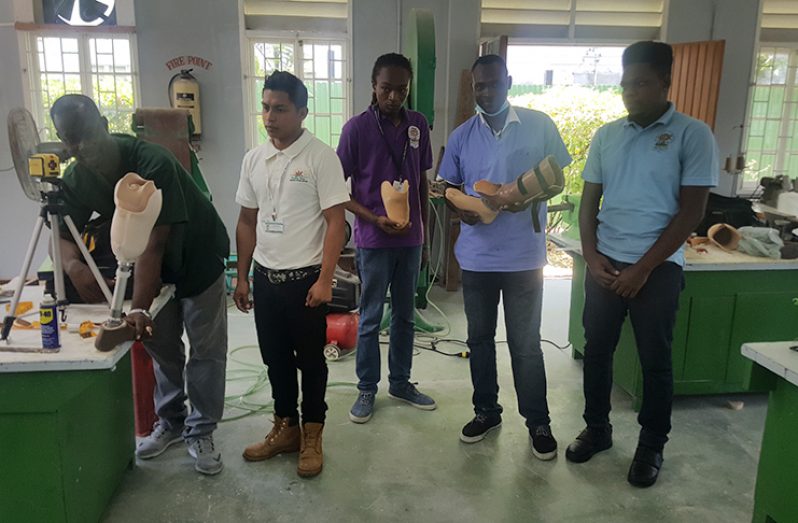THE handing over of spanking new custom-made prostheses to 25 patients at the Ptolemy Reid Rehabilitation Centre last Friday, came on the final day of an intense two-week PAHO/WHO-funded training programme in Prosthesis and Orthosis, for technicians at the facility.
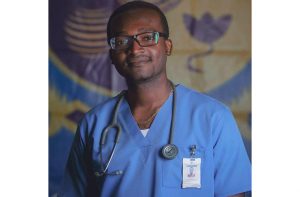
It was with a deep sense of gratitude, renewed hope and unspeakable joy, that the amputees, many of whom had lost both legs and were confined to wheel-chairs, received the prosthetics.
Rehabilitation Officer Cynthia Massay said that the training initiated jointly between the Ptolemy Reid Rehabilitation Centre (PRRC) and the Pan American Health Organisation/World Health Organisation (PAHO/WHO), is a capacity building initiative which offered training in Prosthesis and Orthosis for five technicians at the centre.
The objective was to equip them to master the art of producing prosthetic and orthotic appliances for persons who have lost both limbs by way of trauma brought on through accidents; amputations (notably diabetic); as well as congenital ones (persons who were born with limbs missing or malformation).
Heading the team of persons conducting the training was Jon Batzdorff, CPO Director, of Prosthetika, a Not-for-Profit Corporation coming out of California. With him were Eddy Leopordo Fuentes, CPO from Diabetics Solutions and working in Guatemala and Puerto Rico and Laura Burgess, an expert Physiotherapist in Prosthetic Rehabilitation from Britain.
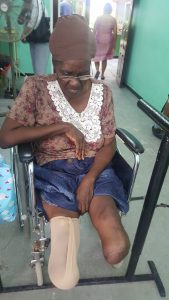
Of the five persons trained, three were junior technicians employed at the workshop, while the other two had previous professional training overseas, but were included in this training in order to improve their experience and technologies, thus making them capable of producing prostheses which are more technologically advanced and within a cost range affordable to persons with such disabilities in Guyana, Massay outlined.
The trainees on the programme were Marlon Andres of the Mazaruni Potaro Region: Keron Kyte of Plaisance, Region Four; Mark Flavius of Agricola, of East Bank Demerara also in Region Four, along with Senior Technicians – Colin Charles and Junior Whyte.
The contract specified that the training be done over a period of two weeks, at the end of which 25 prostheses would be delivered to the patients through the administration free of charge. Massay said that even though the timeframe was short, the performance was phenomenal. “It’s amazing! All the prostheses were blasted and fabricated and all 25 were completed and delivered,” she said. For her, it was a ’shot-in-the-arm’, since, apart from funding the experts, PAHO also provided some very essential equipment which will replace those at the Rehab Centre, now very old and no longer relevant, Massay said.
WORKING WITH THE TEAM

Over the period, the consultants did demonstrations and lectured to the technicians and they, in turn, with the experts’ supervision, did actual modelling and manufacturing of the prosthetics. “So it has been two weeks of intense training and fabricating of prostheses and to my mind, they have exceeded our expectations,” Massay proudly declared, adding that PAHO has been ‘extremely generous’. “All the components have been free of charge because PAHO has been collaborating with us for that,” she gratefully acknowledged.
Massay says the PRRC is hopeful that the training will continue over time, since the current focus is on the Prosthesis, whereas there should be a focus on Orthosis as well. At the PRRC, Prosthesis deals with the replacement of natural body parts with artificial ones, in an event of damage or loss, with a focus on the lower and upper limbs, while Orthosis deals with the fabrication of materials that protect, support, prevent and correct body deformities. These include braces, splints, corsets etc.
Timely arrival
Meanwhile, Massay credited Dr. Obiegbusi Samuel Chigbo, a Nigerian doctor at the PRRC for his instrumentality in getting the Prosthetics and Orthosis training programme started at the facility in 2016. She recalled that on April 4, 2016, just as the centre was about to embark on training technicians on Prosthesis and Orthosis, there came Dr. Chigbo who already had a first Degree in Prosthesis and Orthosis. Excited, he came on board, took up the mantle and commenced the process of delivering the first-ever training of Prosthetic and Orthotic technicians locally at the facility, PRRC.
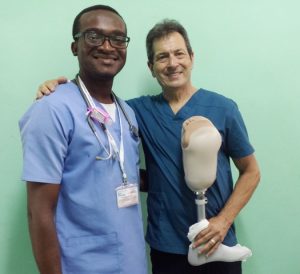
He focused on Bio-mechanics which involves analysis of Gaiting, Prosthesis and Orthosis, while Dr. Andre Adams, a Guyanese doctor working at the centre, was responsible for the Anatomy and Physiology component. Working in consonance, they provided an incredible service/results-oriented team that has kept the doors of the P&O Workshop open until now.
Apart from being Instructor, Dr. Chigbo was also instrumental in initiating the procurement of materials and human resources at the workshop. Pathetically, however, Dr. Chigbo who came on board in April 2016, after serving the institution faithfully for the last two years, will on August 20th be returning to his homeland, Nigeria.
Expressing gratitude to the Ptolemy Reid Rehab Centre, Dr. Chigbo who also studied at the Texila American University in Georgetown, told the Pepperpot Magazine, “I am so delighted giving back to Guyana in my little way, as a form of appreciation towards her hospitality during my time of studies as a medical student in the country. During my two years of voluntary service at PRRC, I came in contact with a wonderful set of persons from the administrative department down to patients. Putting smiles on their faces has gained me lots of friends who are more like a family to me now. I will miss them all. I hope to come back someday to contribute more to building the human resources of this great nation.
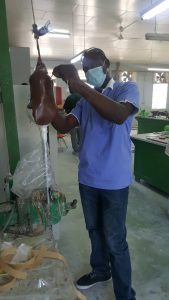
I believe that a country becomes rich and developed not by the enormous amount of natural resources deposited beneath her soil, but by the level of the human resources found within her borders. I am currently a Guyanese by naturalisation, and this means that I can come to my beautiful Guyana at any time to contribute my quota towards the building of her human resources.”
Meanwhile, wrapping up the two-week PAHO/WHO-funded training, Jon Batzdorff, CPO Director of Prosthetika, the Non-Profit Corporation who coached the five technicians, declared: “We are very happy to be doing this project in cooperation with the Ptolemy Reid Centre and to be able to do our part in improving the lives of disabled people in Guyana.“





.jpg)


